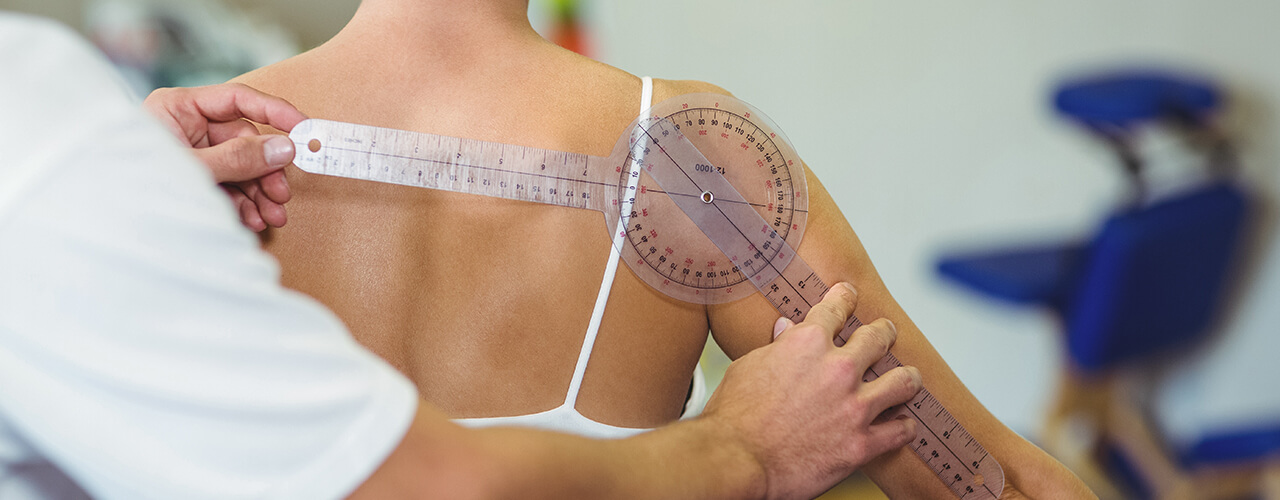Does reaching up to the top closet shelf or opening an overhead kitchen cabinet feel like absolute torture? Do you find yourself looking for ways to avoid lifting your arm to shoulder height? If so, you're probably struggling with some form of shoulder pain. Whether you injured your shoulder in a recent accident, you're experiencing the side effects of over-training, or you're simply facing age-related deterioration in this important part of the body, you may find that many abilities and motions you once took for granted have become impossible goals. But don't give up on that aching shoulder just yet, because our Chubbuck physical therapist can provide safe, noninvasive therapies to help you regain pain-free range of motion.
What Is Shoulder Pain?
Shoulder pain can take several forms, from a mild, nagging ache to a sharp, sudden pain every time you move your shoulder in a certain way. The shoulder itself is a more complex joint than the simple "ball and socket" you might imagine. In addition to the bones that come together to form the joint — including the clavicle, humerus, and scapula — there are also the four major muscles and tendons that articulate the arm in its wide range of shoulder motion. The soft tissues are collectively known as the rotator cuff. The shoulder also has anti-friction components such as cartilage (which cushions the bone ends) and bursae (fluid-filled sacs that reduce friction between tissues). If any of these components sustain damage or deterioration, they can produce shoulder pain.
What Causes Shoulder Pain?
Shoulder pain can stem from a number of different injuries and conditions. Your shoulder pain could be the result of:
- Rotator Cuff Tendonitis and Shoulder Impingement Syndrome: When the tendons of the rotator cuff rub against bones or become pinched, you may experience extreme pain and stiffness in your shoulder. Athletes or workers who constantly work their shoulders may develop these issues from chronic overuse.
- Arthritis: Deterioration of the cartilage inside the shoulder joint can permit bone-on-bone friction, causing pain and inflammation.
- Bursitis: While the bursae normally prevent friction-based inflammation in the shoulder, they can become pinched and inflamed in their own right. The resulting shoulder pain is called bursitis.
- Frozen Shoulder: Adhesive capsulitis, aka frozen shoulder, usually develops in a shoulder that has been immobilized for a long time (as in a broken arm constrained by a cast for several weeks).
- Dislocation: A strong-enough impact can knock the ball of the shoulder completely out of its socket. Once you've had a dislocated shoulder, you're more likely to suffer the problem again.
- Fracture: A broken clavicle, humerus or scapula can be extraordinarily painful until the bones have completely healed.
How Physical Therapy Helps Shoulder Pain
Physical therapy can play a key role in helping you rehabilitate an injured, ailing or otherwise painful shoulder. Your Chubbuck physical therapist first needs to figure out exactly what's causing your pain. Range-of-motion testing can determine exactly what motions trigger your symptoms (or temporarily relieve those symptoms). Your age, baseline fitness, medical history, lifestyle and other factors can help fill out the picture.
Once your physical therapist understands what's going on in your shoulder, you'll receive a comprehensive, personalized physical therapy plan. This plan may include such helpful therapeutic techniques as:
- Exercises such as shoulder blade squeezes and shoulder rolls to combat arthritis-related shoulder pain
- A combination of exercise and low-level laser therapy (LLLT), which has been found to ease frozen shoulder
- Mobilization with movement (MWM), a physical manipulation technique that can treat shoulder impingement syndrome
- Strengthening exercises to rehabilitate muscles that went unused while a shoulder fracture healed
- Heat ice, taping, electrical stimulation, corrective exercises, lifestyle modifications and other methods to ease shoulder bursitis
The right course of physical therapy can help you get over acute shoulder pain or manage chronic shoulder pain without surgery. Contact High Desert Osteopractic Physical Therapy at Chubbuck, ID center today to learn more and schedule an evaluation so our physical therapist can take that uncomfortable burden off of your shoulders!






